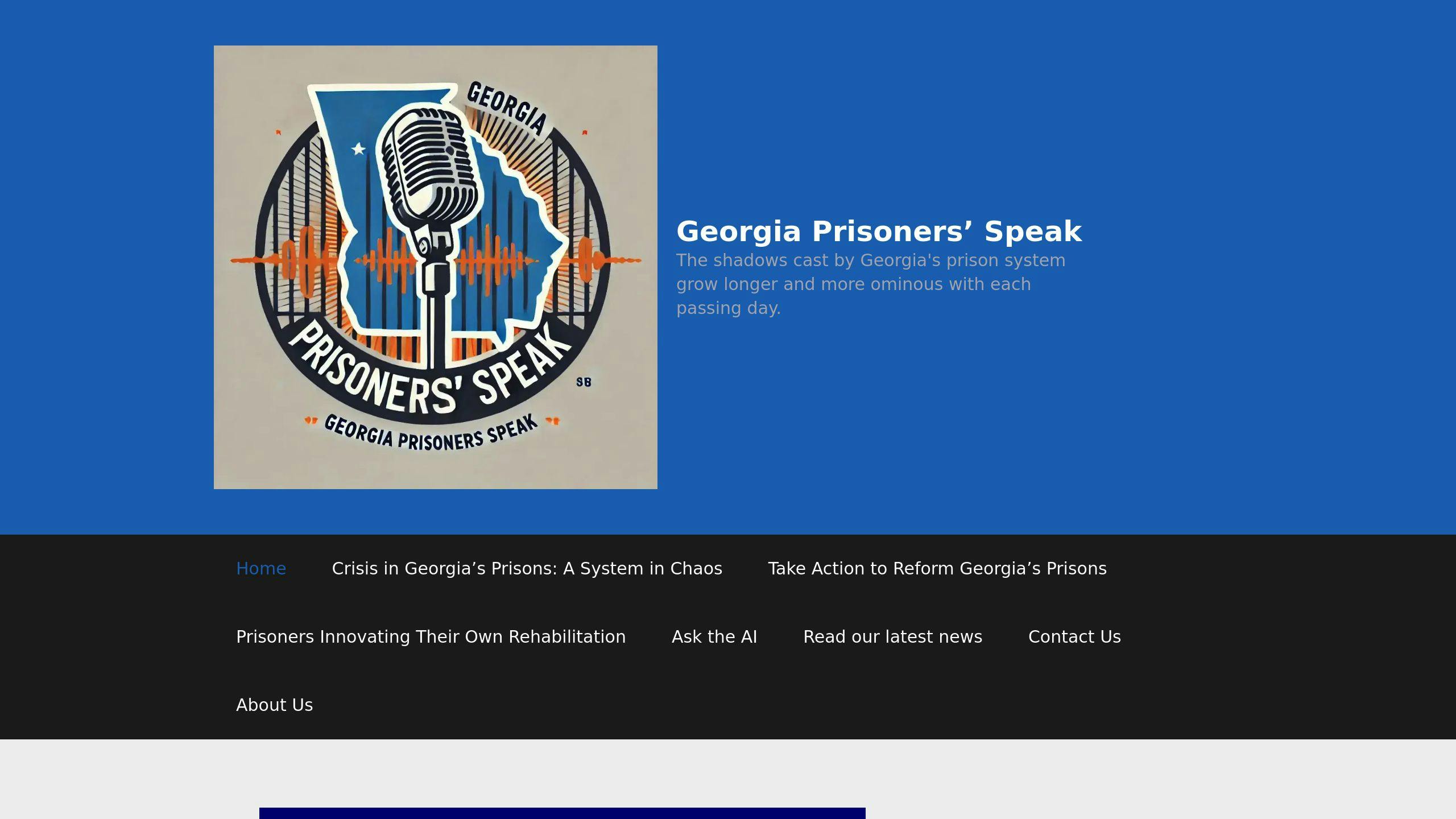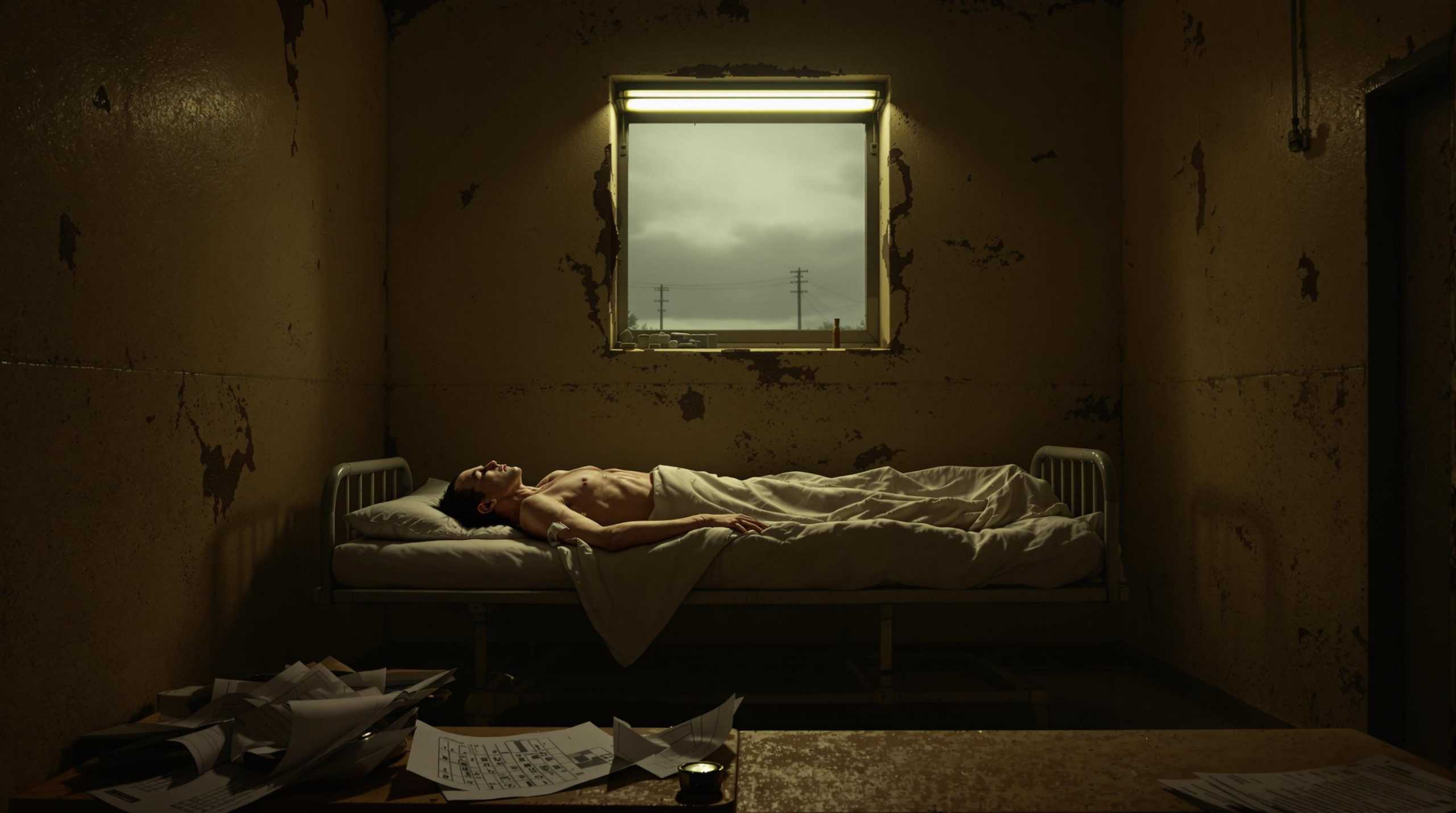Georgia’s prisons are in a healthcare crisis. Privatized care has led to neglect, understaffing, and preventable deaths. Between 2016 and 2020, inpatient admissions rose by 45% while 480 healthcare positions remained vacant. In 2023, Fulton County Jail reported 314 stabbings, 8,000 assaults, and inadequate mental health care for 62% of inmates. Despite switching contractors in 2024, systemic issues persist.
Key Issues:
- Staffing Shortages: 480 vacant positions by 2020.
- Mental Health Neglect: 62% of inmates lack proper care.
- Violence and Unsafe Conditions: 314 stabbings and over 8,000 assaults in 2023.
- Profit-Driven Care: Cost-cutting delays treatments and denies procedures.
Solutions:
- Independent oversight and audits.
- Competitive salaries to attract staff.
- Stricter regulations for private contractors.
- Advocacy for transparency and accountability.
The system prioritizes profits over care, violating constitutional rights and human dignity. Immediate reforms are needed to address this public tragedy.
Lawmakers recommends expansion of mental health services for Georgia prisons
The Problem: How Privatized Healthcare Fails Georgia’s Prisons
Privatized Healthcare in Georgia Prisons: A Brief History
Georgia began using privatized healthcare in its prisons in the 1990s, but the approach failed to deliver better care. By 2021, the Georgia Department of Corrections (GDC) partnered with Wellpath to oversee healthcare services, focusing on cutting costs rather than improving quality. This shift led to a noticeable decline in medical standards, worsened by an ongoing staffing crisis. By 2020, 480 healthcare positions remained vacant, leaving facilities dangerously understaffed. Instead of solving staffing issues, privatization deepened the problem, embedding a profit-first mindset that overlooked patient care.
The Impact of Profit-Driven Healthcare Models
Wellpath’s management often labeled necessary treatments as too expensive or unnecessary [3]. This profit-driven approach caused delays in care, denied procedures, chronic understaffing, and overworked medical staff. Mental health care, needed by 62% of inmates, was also insufficient [2]. These shortcomings led to worsening chronic conditions, more hospitalizations, and preventable deaths. Without preventive care or early intervention, inpatient admissions surged by 45% between 2016 and 2020 [1].
Healthcare Neglect and Constitutional Rights Violations
A U.S. Justice Department investigation revealed systemic violations of inmates’ constitutional rights. Overcrowding, poor living conditions, and inadequate medical care were cited as factors contributing to the "horrific and inhumane conditions" in Georgia prisons [4]. Fulton County Jail stands out as a glaring example, with 314 stabbings and over 8,000 assaults reported in 2023 alone [2]. These failures, paired with inadequate medical responses, underscore a system that disregards both healthcare and human rights. The tragic outcomes – preventable suffering and deaths – highlight the human cost of this neglect.
sbb-itb-7858f51
Case Studies: The Human Cost of Healthcare Failures
Fulton County Jail: A Breakdown in Care and Safety
Fulton County Jail highlights the deep issues within Georgia’s prison healthcare system. The facility faces overwhelming violence and a mental health crisis, pointing to a complete collapse in providing care for inmates. With too few medical staff, sick inmates face long waits for treatment, causing their health to worsen significantly. Mental health care is particularly lacking, with delays in competency evaluations leaving many vulnerable individuals without the help they need [2].
These problems at Fulton County Jail are not unique. They mirror a larger issue of neglect and poor management across Georgia’s prisons. Between 2022 and 2024, six individuals died in custody, many from preventable causes tied to inadequate medical care [2].
Georgia Department of Corrections: A System of Neglect
The Georgia Department of Corrections (GDC) shows how privatized healthcare has failed incarcerated people statewide. Following numerous reports of malpractice and harm to patients, the GDC ended its contract with Wellpath and switched to Centurion Health in July 2024 [1]. Despite this change, the core issues remain unresolved.
A Department of Justice investigation uncovered widespread violations of constitutional rights in Georgia’s correctional facilities. Beyond failing to provide adequate medical care, the system also neglected basic needs, such as special education services for 17-year-olds in custody [2]. These failures expose a system more focused on cutting costs than upholding human rights and dignity.
The consequences go beyond numbers. Preventable deaths, untreated chronic illnesses, and needless suffering paint a grim picture. Individual stories reveal a pattern of delayed or denied care, driven by a system that prioritizes profits over the well-being of those in its custody.
Solutions: Fixing the Healthcare Crisis in Georgia Prisons
Strengthening Oversight and Transparency in Prison Healthcare
Reforming prison healthcare starts with better oversight and open reporting. Independent review boards should conduct regular audits of healthcare facilities in prisons and make their findings public. This helps uncover systemic problems and ensures compliance with constitutional standards.
The shift from Wellpath to Centurion Health in July 2024 [1] highlights the importance of tighter contractor monitoring. Key performance indicators should include:
- Maintaining at least 90% staffing levels
- Ensuring non-emergency care is provided within 24 hours
- Tracking preventable deaths on a quarterly basis
- Limiting wait times for mental health evaluations to a maximum of 14 days
While oversight is a key step, deeper reforms are needed to tackle the underlying issues in prison healthcare.
Policy Adjustments to Tackle Staffing and Care Issues
Addressing the severe staffing shortages in Georgia’s prisons demands immediate action. Key policy changes could include:
- Allocating more funds to offer competitive salaries and benefits for medical staff
- Implementing stricter regulations for private contractors to prioritize patient care, especially mental health services, as 62% of the jail population struggles with mental health conditions [2]
Combining these changes with grassroots advocacy can pave the way for meaningful improvements.
Georgia Prisoners’ Speak (GPS): Driving Advocacy for Reform

Advocacy groups like GPS are essential in raising awareness and holding officials accountable. Their efforts focus on exposing healthcare failures and empowering citizens to demand change. GPS achieves this by:
- Documenting constitutional violations and sharing evidence of prison conditions
- Offering resources for citizens to directly contact government representatives
- Collaborating with legal and healthcare professionals to create targeted reform proposals
Conclusion: Taking Action to Solve the Crisis
A Closer Look at the Healthcare Crisis in Georgia Prisons
Georgia’s prison healthcare system, managed by private contractors, continues to fail inmates, leading to widespread neglect and suffering. With 62% of inmates dealing with mental health issues [2], the problem goes far beyond numbers – it’s about real human lives. The ongoing lack of proper medical care and constitutional violations highlights a broken system in desperate need of change.
Steps to Drive Reform and Accountability
Addressing this crisis requires action on multiple fronts. Individuals can make a difference by reaching out to their representatives and supporting advocacy groups, such as GPS, to amplify awareness. Communities can organize public hearings and push for local initiatives to demand change. On a broader scale, systemic reforms like independent audits and transparent reporting are crucial for real progress.
Advocacy groups like GPS play a critical role by equipping citizens with resources to document issues, engage with policymakers, and advocate for reform. Their efforts focus on:
- Establishing independent oversight for healthcare facilities
- Promoting transparency through regular public reports
- Supporting legal actions to ensure constitutional compliance
- Building partnerships between community organizations and healthcare experts
Fixing Georgia’s prison healthcare system will take time, effort, and commitment from everyone involved – from everyday citizens to state leaders. The goal is clear: a system that prioritizes ethical, patient-centered care over profit and neglect.
